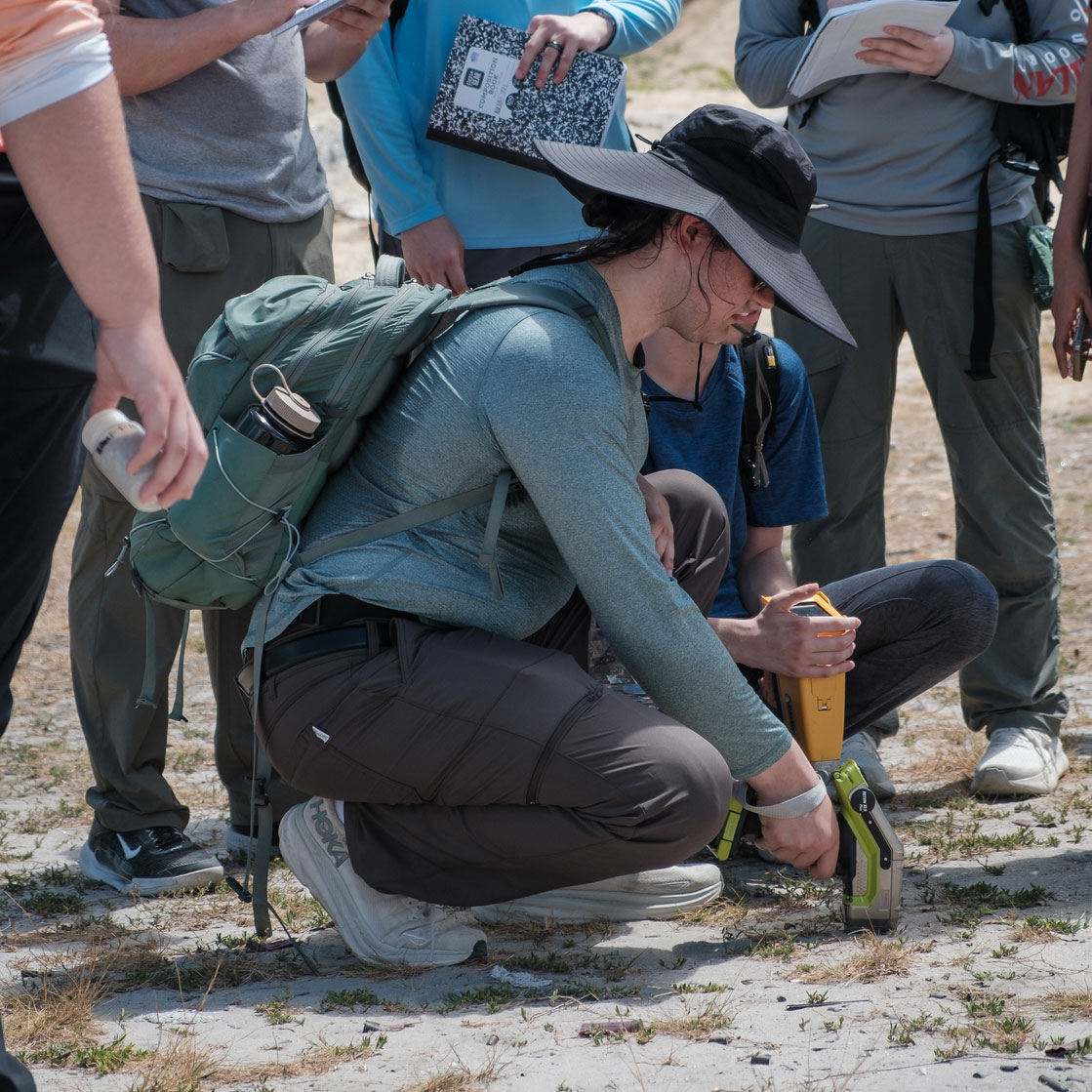Belize does not currently regulate lead in paint, yet exposure to the heavy metal can cause lead poisoning and seriously harm a person’s health. It is especially dangerous for children, whose mental and physical development may be severely affected. The Mercer On Mission team is working with the University of Belize to determine if paint sold in the country contains lead.
Mercer students will screen for lead in paint on murals, outdoor exercise equipment and playground structures, as well as newly purchased paint. Soil and water may also be tested. Students will learn how to screen for lead using Lumetallix, a proprietary spray that visually demonstrates where lead is present. They also will learn how to test paint for lead using a Mercer-developed method involving a portable X-ray fluorescence, or pXRF, analyzer to measure the amount of lead in the paint. Students will compile, analyze and report on the data collected.

Fieldwork offers a completely different experience than classroom labs. In class, labs are often pre-planned and follow a set procedure, like a cookbook. But in fieldwork, you go out, collect your own data, and then work to make sense of it. It’s a much more dynamic and hands-on approach to learning chemistry.
Students are required to sign up for six hours of credit. The registrar will enroll you in courses for your program, including one class from each of the program's faculty. Participating in this program allows students to receive four hours lab credit. Engineering students should contact Dr. Addie Buerck to discuss how this can work into their academic plan.